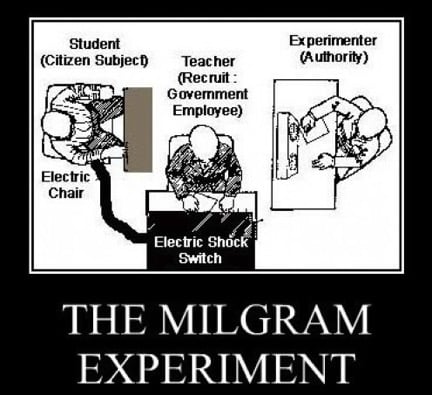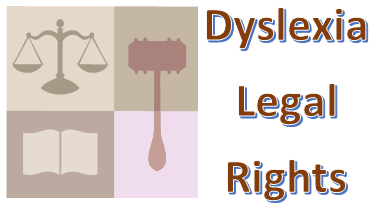Suggestibility Assessments
How Does Suggestibility, Conformity, Obedience and Compliance Result in False Confessions or Illegal Behaviour?
"Suggestibility has been shown by psychologists to cause false confessions. Psychologists have demonstrated conformity, obedience and compliance can cause illegal behaviour. An assessment by an expert psychologist of a defendant who is considered to be suggestible or compliant is a crucial part of constructing a defence that ensures there are no miscarriages of justice."
What is a False Confession?
A false confession occurs when a defendant, admits to a crime that they did not commit. The psychological process of false confessions is complex. However, the research reviewed by our expert psychologists and their practical experience of working with defendants and in the criminal justice system demonstrates that some individuals are psychologically more likely to confess to crimes than others. There are often psychological factors which can be objectively measured in some defendants which show a propensity to make false confessions to crimes that they did not commit.
There are several reasons why an individual might make a false confession, for instance, a defendant may make a false confession to attempt to mitigate the possibility of receiving a harsher sentence when, although they are innocent, the factual evidence does not support their innocence. Sometimes, defendants may make a false confession to protect a friend or relative who committed the crime. In other instances, a defendant may confess to something they did not do because they are suffering from a mental disorder. Defendants may make a false confession in response to a bribe from a third party. False confessions also frequently occur when individuals are easily led, have low IQ or personality factors resulting in them feeling pressurised into admitting to offences they have not committed.

How Does Offender Suggestibility Impact on the Quality of Evidence?
"In legal psychology, suggestibility relates to the phenomenon that is found when a subject under interrogation yields to leading questions when pressure is applied and shifts their answers when interrogative pressure is applied. Put another way; the psychologically suggestible suspect admits facts which are incorrect under pressure. This is often called interrogative suggestibility. For lawyers, the concept of suggestibility is vital because it is critical that the court has robust evidence to show the defendant’s guilt or innocence. Suggestible defendants may, therefore, admit offences that they did not commit because of their suggestibility, the quality of their evidence under cross-examination in court is likely to be reduced, and they are unlikely to come up to proof."
Suggestible witnesses often possess one or more of the following characteristics:
- A low IQ or learning disability;
- Submissive personality;
- Conforming personality;
- Are suffering from a mental illness;
- Are juveniles; and
- A low Mental age
The leading measure of suggestibility is a psychological test called the Gudjonsson Suggestibility Scale (GSS). Gudjonsson Suggestibility Scale Download. Elevated scores on the GSS are correlated with suspects who are likely to make false confessions under cross-examination or interrogation.
Advanced Assessments’ expert witness psychologists use the GSS in combination with other psychological tests, such as personality tests, IQ test as well as a structured clinical interview, the Wechsler Memory Scale, the Test of Memory and Learning, observations and content analysis of the relevant documents to objectively assess whether the suspect is suggestible. By using this multi-method approach, our expert psychologists can gather robust and reliable objective data to clearly show whether a subject is, in fact, suggestible. In this way, our expert psychologists can use reliable and valid evaluations of suggestibility that rule out attempts to fake suggestibility and meet the very high standards required under the expert’s overriding duty to the court.
Why is Police Suspect Suggestibility Important in Legal Proceedings?

Our expert psychologists assess police suspect suggestibility to establish whether a defendant is likely to produce false low-quality evidence and false accounts when interrogated by the police or cross-examined in court. The GSS is sometimes used along with other psychological tests to determine whether a defendant is fit to plead and fit to stand trial.
An assessment of suggestibility is also essential when determining whether eyewitness evidence is reliable in criminal, civil, employment tribunal, personal injury and other legal proceedings.
How Does Conformity, Compliance and Obedience Differ from Suggestibility?
Conformity, compliance and obedience are different to the psychological concept of suggestibility. The concept of obedience and conformity can explain why defendant’s commit offences under the orders of individuals who they regard to be authority figures. The psychological phenomenon of obedience was demonstrated by Stanley Milgram of Stanford University. Milgram's research showed that ordinary people would obey authority figures and administer lethal doses of electric shocks, which would apparently kill the person on the receiving end. This work was ultimately used to explain the war crimes committed during the Second World War.

The concept of conformity, on the other hand, is used to explain the psychological process where individuals will change their behaviour and views to fit in with the dominant view of the group, to such an extent that they may give factually wrong information because of group pressure. The leading study was carried out by Solomon Asch, who demonstrated how susceptible individuals are to group pressure.
Find Out More About the Psychology of Suggestibility, Conformity and False Confessions
Suggestibility
Conformity, Compliance, and Obedience
False Confessions
Parental Alienation Syndrome & Family Law
What is Parental Alienation Syndrome?
"Parental alienation is often raised as a reason for children not wanting to see the parent who they do not live with in child contact and residence disputes. The psychological process of parental alienation is said to develop by the parent with care, and therefore with power, directly or indirectly causing the child to show unjustifiable anxiety, disrespect or hostility towards the non-resident parent. The result of the processes is that the child ultimately rejects the non-resident parent, and typically asserts that they are doing this of their own volition. The process is problematic because, in child contact and residence disputes in the United Kingdom, the family courts place the wishes and feelings of the child at the centre of their decision-making. Therefore, when a child says that it does not want to see the non-resident parent, this assertion is likely to be given considerable weight by the courts; unless it can be demonstrated that the child is a victim of parental alienation."
The UK courts often prefer to use the term implacable hostility to describe the symptoms shown by the parent with care when a child has been subject to parental alienation. Some psychologists and psychiatrists use the term pathogenic parenting to describe parental alienation by the parent with care.
It is important to note that the process of parental alienation is hugely damaging to the psychological well-being of the child that has been alienated. A good childcare lawyer will, therefore, direct the expert to consider whether the child has suffered significant harm. If a child has suffered significant emotional (psychological) harm within the meaning of the Children Act 1989, as a result of parental alienation, this can be a strong argument to reverse the current residence or child contact arrangements in favour of the parent that does not have residence or has limited contact with the alienated child. Put another way, many expert psychologists and child care mental health professionals believe that parental alienation is child abuse.
Our expert psychologists have worked with children and young people in several settings and provided advice for parents in child contact disputes.
Why Has it Been So Difficult for a Diagnosis of Parental Alienation to be Accepted in UK Courts?
Our expert psychologists are particularly familiar with the work by Richard Gardner on parental alienation syndrome, a concept that has been recognised by some in the USA but has not generally found acceptance by the family courts in the UK. The concept is controversial. Parental alienation syndrome has not received general acceptance by the courts for two key reasons:
- an alienation syndrome is not a professionally recognised diagnosis; and
- the absence of a reliable clinical-forensic assessment of the alienation syndrome.
"Consequently, parental alienation did not exist as a discrete category in the Diagnostic and Statistical Manual of Mental Disorders in the American Psychological Association DSM-IV (which is now obsolete). However, this does not mean that such a process does not exist. Our expert psychologists have observed the process in several family settings."
This explains why the assessment of parental alienation does not form part of the formal training of psychologists or psychiatrists. Formal training in the area is, therefore, by self-directed learning and practical experience of dealing with such cases.

How is Parental Alienation Diagnosed?
Dr Craig Childress, one of the leaders in this field, teaches that parental alienation is a two-person diagnosis. Childress believed it is necessitated by the child’s primary diagnosis of a shared psychotic disorder (DSM-IV TR Code 297.3) when the child effectively shares the delusional belief system of the alienating parent.
Central to this model is the view that the alienating parent has a personality disorder with borderline, narcissistic and antisocial features. Emerging from the personality disorder of the alienating parent is an “encapsulated” delusional disorder (a fixed belief system that is impervious to facts, reason or evidence) involving the inadequacy of the targeted parent (often the parent without care). The fixed belief system represents an intransigent psychological re-enactment dynamic of early childhood relationship trauma consistent with the development of personality disorder.
In when the DSM-5 was developed, Dr Childress refined his model it fits with the following DSM-5 diagnosis:
- 309.4 Adjustment disorder with mixed disturbance and emotions and conduct
- V61.20 Parent-Child Relational Problem
- V61.29 Child Affected by Parental Relationship Distress
- V995.51 Child Psychological Abuse, Confirmed (pathogenic parenting)
Richard Gardener believed that parental alienation syndrome appears mainly in child custody dispute where the child turns massively against the parent without care without reasonable grounds for doing so. This action of the child is a result of the parent with care’s emotionally abusive attempts to incite the child against the non-custodial parent. Gardener believed that where a child’s rejection of the parent is based on some real experience, a diagnosis of parental alienation should not be made.
Find Out More About Parental Alienation
Fitness to Plead
Test of Fitness to Plead in R v Pritchard
To determine whether a Defendant is fit to plead and fit to stand trial the information gathered during the expert witness psychologist assessment must be analysed in the context of the fitness to plead and fitness to stand trial test developed from the case of R v Prichard (1836) 7 C. & P. The test has developed over the years but can be stated as follows:
Does the Defendant Understand the Nature of the Offence?
Part of the assessment of fitness to plead is to test whether an individual understands the nature of the charges they face.

Is the Defendant Able to Comprehend the Evidence?
Defendants may have significant literacy and mental health problems. However, they may be still fit to plead with an intermediary to break the evidence down into a digestible form.
Is the Defendant able to Provide Advice to His or Her Legal Team?
Our expert psychologist evaluates whether a defendant can provide a coherent explanation of events. A defendant may be fit to plead if jury would be able to make adequate sense of the defendant’s evidence.
Additional time and additional support may need to be provided when a defendant is giving his evidence in court.
Typically, our expert psychologists consider whether there are any no apparent signs of delusions or hallucinations. If a defendant can instruct his legal advisers, even with considerable assistance they may be fit to plead.
Is the Defendant able to Understand the Course of Proceedings, So as to Make a Proper Defence?
Connected with this, under the Pritchard criteria, is the defendant’s ability to make a proper defence. Whether or not his version of events is accepted is an issue for the jury to determine.
Does the Defendant Understands the Advice, He or She is Being Given?
If the defendant is able to understand the advice and understand the information necessary to consider that advice properly, they are likely to be fit to plead.
Does the Defendant Understand the Legal Process?
Finally, one must as if the defendant understands the legal process. This means do they understand what the function of a judge is and the judge’s role? If the defendant also understands the role of the prosecution and defence barrister they are likely to be fit to plead and fit to stand trial.
Find Out More About Fitness to Plead and Fitness to Stand Trial
Dyslexia & the Law
Dyslexia
What is Dyslexia?
Dyslexia is characterised as a lifelong reading disorder caused by a neurological difference in the brain. People with dyslexia’s intelligence does not match up to their performance in academic areas such as reading, spelling and writing. It is important to get a diagnosis of dyslexia quickly because with the right support people with dyslexia can achieve outstanding results in education, employment and other areas of life. The right support can address the problems often associated with dyslexia.

Dyslexia Diagnosis
Dyslexia can be diagnosed through a series of approved test which are memory, processing speed, ability to reason with words and the ability to reason without words. Our expert psychologist will compare the client’s underlying cognitive ability (as measured by these tests) with their performance on literacy test measuring, reading, spelling, and handwriting. Where the expert psychologist finds the client’s, academic achievement is inconsistent with their underlying ability (IQ) a diagnosis of dyslexia may be made. To read more about dyslexia symptoms click this link
Dyslexia Assessments
Our dyslexia assessment can take up to are completed at the client’s pace, we do not set dictate that the assessment must be completed within three hours. The assessment can be conducted at home or in the Advanced Assessments Assessment Centres. The Dyslexia Diagnostic Assessment will measure reading, writing and spelling, measure handwriting and fine motor skills, and observe the learner’s ability such as speed of processing language, memory and speech. Through this assessment, the client will be formally diagnosed. Must important we will provide strategies and an action plan for the client the reach their full potential.
